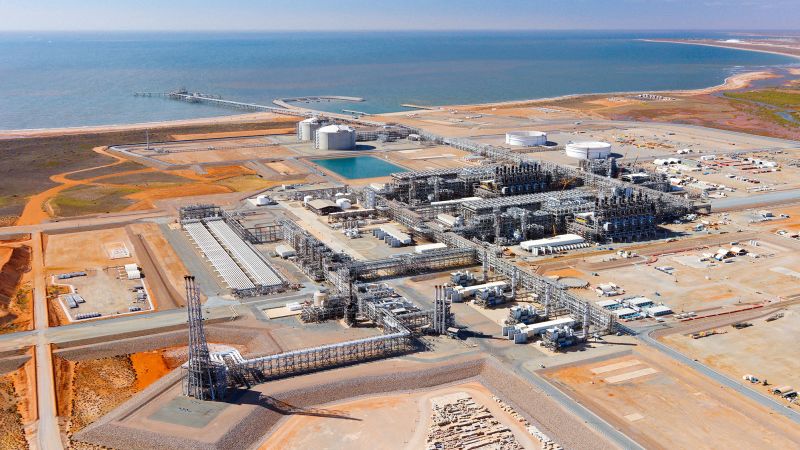Union workers are set to go on strike at Chevron’s liquefied natural gas (LNG) facilities in Australia next Thursday, in renewed action that could disrupt about 7% of global LNG supply.
Chevron (CVX) confirmed that it had received notice of industrial action scheduled to start on October 19 that would involve work stoppages and partial work bans.
The decision to resume a boycott was first announced Friday, two weeks after the company and the Offshore Alliance, which represents two Australian labor unions, said they had accepted new employment agreements proposed by the country’s workplace relations tribunal.
The proposed deals had contained improvements in pay and other conditions, leading unions to call off strikes at the time.
But since then, both sides have continued to clash on issues including stipends and travel arrangements for workers during training, according to the US energy giant.
Fresh strikes could again threaten to disrupt production at Chevron’s hugely significant Wheatstone and Gorgon facilities, located near the coast of Western Australia.
In separate statements shared with CNN, Chevron and the alliance said they had worked to draft agreements based on recommendations from Australia’s Fair Work Commission.
The alliance, however, has accused Chevron of reneging on its commitments, saying the company’s lawyers had “been attempting to walk back some clauses previously settled.”
In response, a spokesperson for Chevron Australia told CNN that it had been making progress, “with the exception of a small number of items that the parties interpret differently.”
“We will continue to take steps to maintain safe and reliable operations in the event of disruption at our facilities,” a company spokesperson said.
Chevron added that it remained “committed” to a deal and hoped to resolve the last outstanding issues.
Felix Booth, head of LNG at energy data provider Vortexa, said the threat to restart strikes could be seen as an attempt by unions “to help them get the best terms possible.”
At this stage, the commission’s recommendations “have to be translated into the legal terms … which can reignite differences between the parties,” he said.
— Olesya Dmitracova contributed to this report.
Read the full article here










